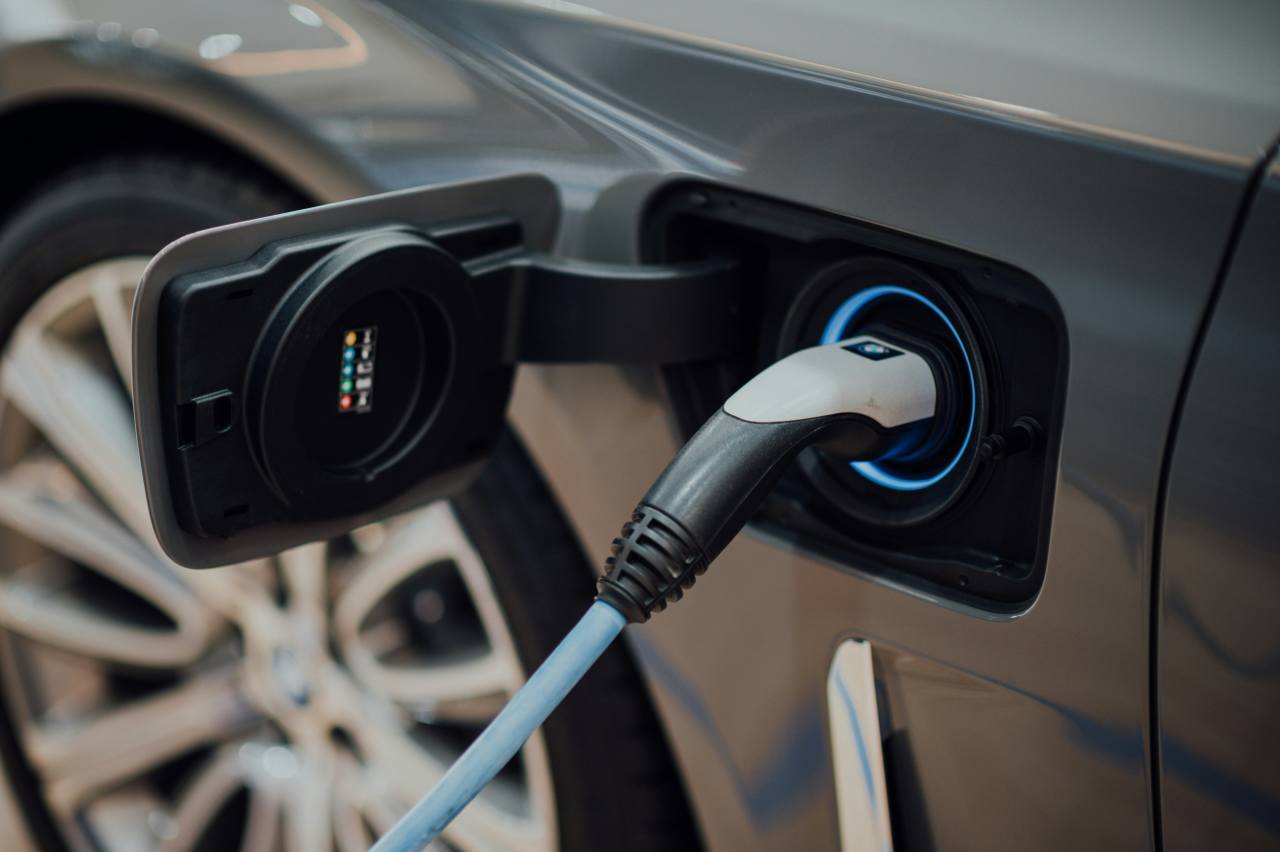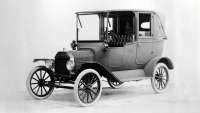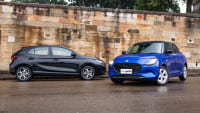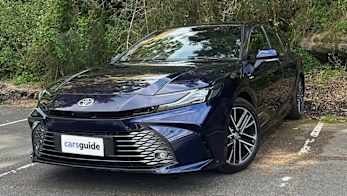Electric cars have had a slow start in Australia, mainly because the odds are stacked against them when it comes to the great distances between our population centres.
What electric vehicles are we referring to? For now, we'll be talking about battery electric vehicles (BEVs), which consist of a large battery pack driving an electric motor or two, as it is too early to discuss their fuel cell electric vehicle (FCEV) alternatives, which as yet are only available in a limited fleet capacity.
In Australia, because batteries and infrastructure are expensive, this means high upfront costs and few places for owners to charge their vehicles.
However, in the last few years, electric car ownership is slowly but surely becoming a more viable option for many, as upfront costs are coming down and infrastructure is gradually being rolled out.
While Australia is also home to the first electric-vehicle specific taxes in the world in places like South Australia and Victoria, some states are going the opposite direction, rolling out the first electric vehicle incentives, which have been called for frequently by advocacy groups like the electric vehicle council, which is comprised of some of the largest automakers like BMW, Hyundai, Mercedes-Benz, Nissan, Tesla and Volkswagen.
So how many electric cars are there in Australia? Not a whole lot in the grand scheme of things. The numbers indicate around 20,000 electric cars have been sold Down Under over the course of the last decade, a number which pales in comparison to the total car market of around one million units a year. In 2020 for example, the total electric car market share was just 0.7 per cent.
.jpg)
During the course of 2021 though, possibly due to an increase of the number of choices and declining prices, there has been a massive uptick in electric vehicle sales. It's starting from a low base, but so far in 2021, over 2500 electric vehicles have found homes compared to less than half that by this time last year. Monthly, the electric car sales statistics show over 500 new electric cars are now sold in our market compared to around 140 a month this time last year. The total increase for electric cars year-on-year is an impressive 200.6 per cent. When it comes to electric cars vs petrol cars though, there's still a huge gap to be covered, with many only now making the move to hybrid vehicles.
So, what's driving this uptake? Availability of charging infrastructure helps, as providers draw on funds being made available at both state and federal levels, but it's also a wider choice of models for sale. Australians can now choose an electric car from Tesla, Hyundai, Kia, Mazda, Nissan, MG, BYD, Mercedes-Benz, BMW, Porsche, and Volvo. Check out our list below for more detail.
One look at any recent EV news and it's clear the number of options available will rapidly expand to include new electric cars coming to Australia from the above existing EV makers, as well as options from the likes of Toyota, Volkswagen, Lexus, Subaru, and other EV-focused automakers are set to debut in our market in the coming years like Polestar and Rivian. Expect to see an expansion in the light commercial space, with electric tech becoming available to vans and small trucks. You can already purchase a Fuso EV in Australia, although it has a roughly 100km range per charge.
.jpg)
In Australia the data tells us that the uptake of electric cars is primarily hampered by upfront cost, with considerations like range and charge times ranking surprisingly low on potential buyer's list of concerns.
With prices starting from $34,950 for BYD's T3 van, there are hardly a long list of cheap options, although those numbers are forecast to come down in the coming decades with per-kWh battery costs expected to nearly halve by 2030, at which point the cost of electric cars could be on-par with their petrol counterparts. This is helped along by the development of the latest new technologies which reduce the amount of rare earth metals required in battery cells, like lithium and cobalt, although some manufacturers have warned that prices in the electric era may never match those seen for combustion vehicles.
Expect the market share of EVs to continue to grow, as diesel and non-hybrid petrol shrinks, particularly as new and more affordable options become available. Many of these options will originate from China and Europe, where tough home-market regulations are forcing a rapid switch to electrification.
.jpg)
Time will tell if FCEV/hydrogen electric players, particularly Hyundai and Toyota, will be able to turn the tech into a viable alternative to EV cars in the future. Stay tuned as we update this story and provide further analysis at our EV Guide advice section. As for the best EVs in our market? That will depend on your requirements, see the table below for your current options
Australian electric car market figures (to the end of July 2021)
| Passenger cars | SUVs | Light commercial | TOTAL | |
| EV sales (YTD July '21) | 1018 | 1682 | 33 | 2732 (+200.6% YTD) |
Top EVs available in Australia
| Make | Model | Category | Range | Price (MSRP |
| Tesla | Model 3 | Sedan | 420 - 657km | $59,900 - $84,900 |
| Model S | Sedan | 637 - 652km | $162,559 - $222,409 | |
| Model X | SUV | 547 - 580km | $189,159 - $206,449 | |
| Hyundai | Ioniq | Hatchback | 311km | $49,970 - $54,010 |
| Kona Electric | SUV | 484km | $62,000 - $66,000 | |
| Kia | Niro EV | SUV | 455km | $67,490 - $70,990 |
| Nissan | Leaf | Hatchback | 270 - 385km | $49,990 - $60,490 |
| MG | ZS EV | SUV | 263km | $44,990 (drive-away) |
| Mazda | MX-30 EV | SUV | 224km | $65,490 |
| Mercedes-Benz | EQA | SUV | 426km | $76,800 |
| EQC | SUV | 434km | $140,771 | |
| BMW | i3 | Hatchback | 260km | $71,900 |
| iX3 | SUV | 460km | $114,900 | |
| i4 | Sedan | 520 - 590km | $99,900 - $124,900 | |
| iX | SUV | 425 - 630km | $135,900 - $169,900 | |
| Audi | e-tron | SUV | 336 - 346km | $136,472 - $156,472 |
| Volvo | XC40 Recharge | SUV | 418km | $76,990 |
| Porsche | Taycan | Sedan | 369 - 434km | $156,300 - $345,800 |
| Jaguar | I-Pace | SUV | 470km | $128,860 - $152,060 |
| Mini | Cooper SE | Hatchback | 233km | $55,650 - $62,825 |
| BYD | T3 | Van | 300km | $34,950 |
| Renault | Kangoo Z.E. | Van | 200km | $50,290 |






.jpg)
.jpg)

.jpg)
.jpg)



_0.jpg)

.jpg)
.jpg)
.jpg)



.jpg)